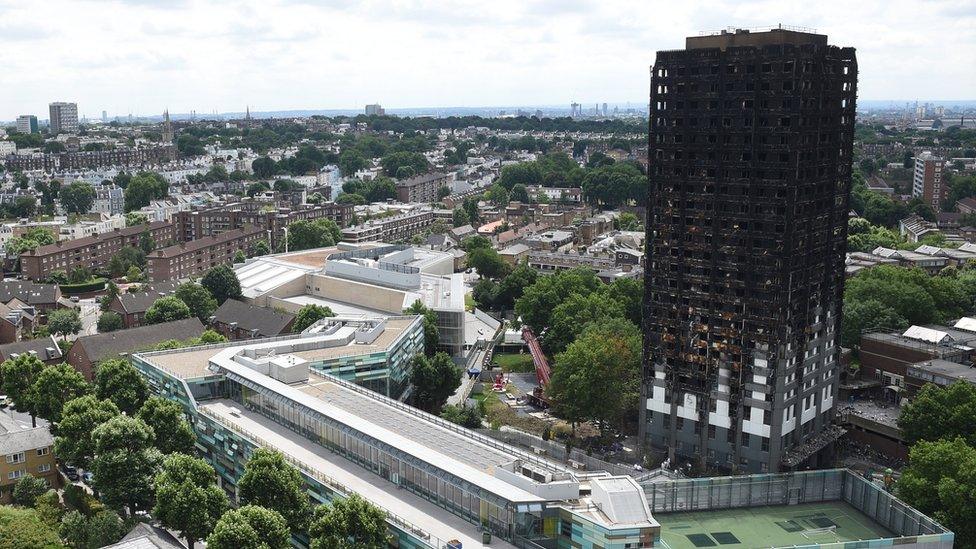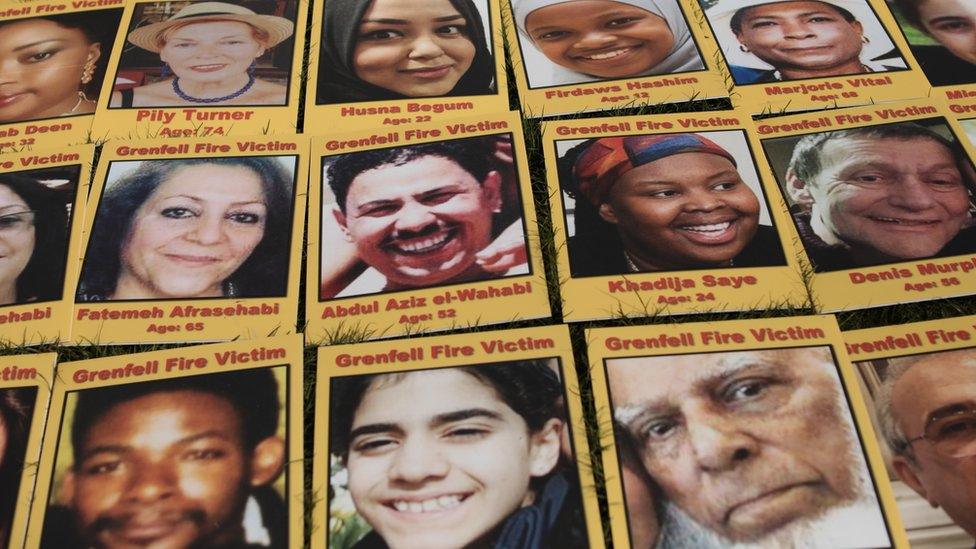Grenfell Tower fire mental health treatment 'to cost £10m'
- Published

About 700 adults and children affected by the tower block fire are currently being treated by a mental health service
Mental health treatment for people affected by the Grenfell Tower fire is expected to cost the NHS more than £10m within two years of the tragedy.
The Central and North West London NHS Foundation Trust said it had spent £4.1m on mental health services in the last financial year.
About 700 adults and children are currently being treated.
The trust predicts it will spend £6.5m more in the year to April 2019.
Extra money to help those affected by the fire, which killed 72 people, was given to the trust by NHS England.
About 2,400 survivors and bereaved families have been screened to decide whether or not they need further treatment for mental health conditions such as post-traumatic stress disorder (PTSD), doctors said.
A centre and team set up specifically to help people affected by the fire is fully operational.
The predicted increase in costs in its second year is a result of taking on additional staff, the team's clinical lead said.

Dr Alistair Bailey said "feelings of shame, or stigma" had been barriers preventing some people from seeking treatment
Speaking from the Grenfell Health and Wellbeing Service at St Charles' hospital, a mile from the charred remains of the west London tower block, Dr Alastair Bailey said the demand for services has been "huge".
"There are many, many people that are in a great deal of distress in the local community - adults and children," he said.
Those who lived in the tower block and inside the cordon are the priority, but the service can be accessed by anyone who feels affected by the fire, regardless of where they live.
Dr Bailey said many people are now seeking help because trauma triggers such as the ongoing public inquiry and the upcoming first anniversary of the fire are causing distress.
While PTSD is a common issue faced by survivors of the blaze, others have experienced anxiety and depression following the death of a loved one, NHS trust figures show.

You may be also interested in:

"Obviously grief is a very normal reaction following the loss of a loved one, but the circumstances surrounding Grenfell fire are anything but normal," he said.
He added that psychological therapy is not the only way to help survivors, and that people's housing situation and the public inquiry were other important factors affecting their wellbeing.
But he said some people have not yet sought help from the NHS because of various "barriers", which sometimes include culture or religion.
"For some people it's taken a long time to get past a barrier around feelings of shame, or stigma, or other concerns that they have about coming forward and accessing help," he said.
- Published16 May 2018

- Published21 May 2018
